6. Chinatown (1974)
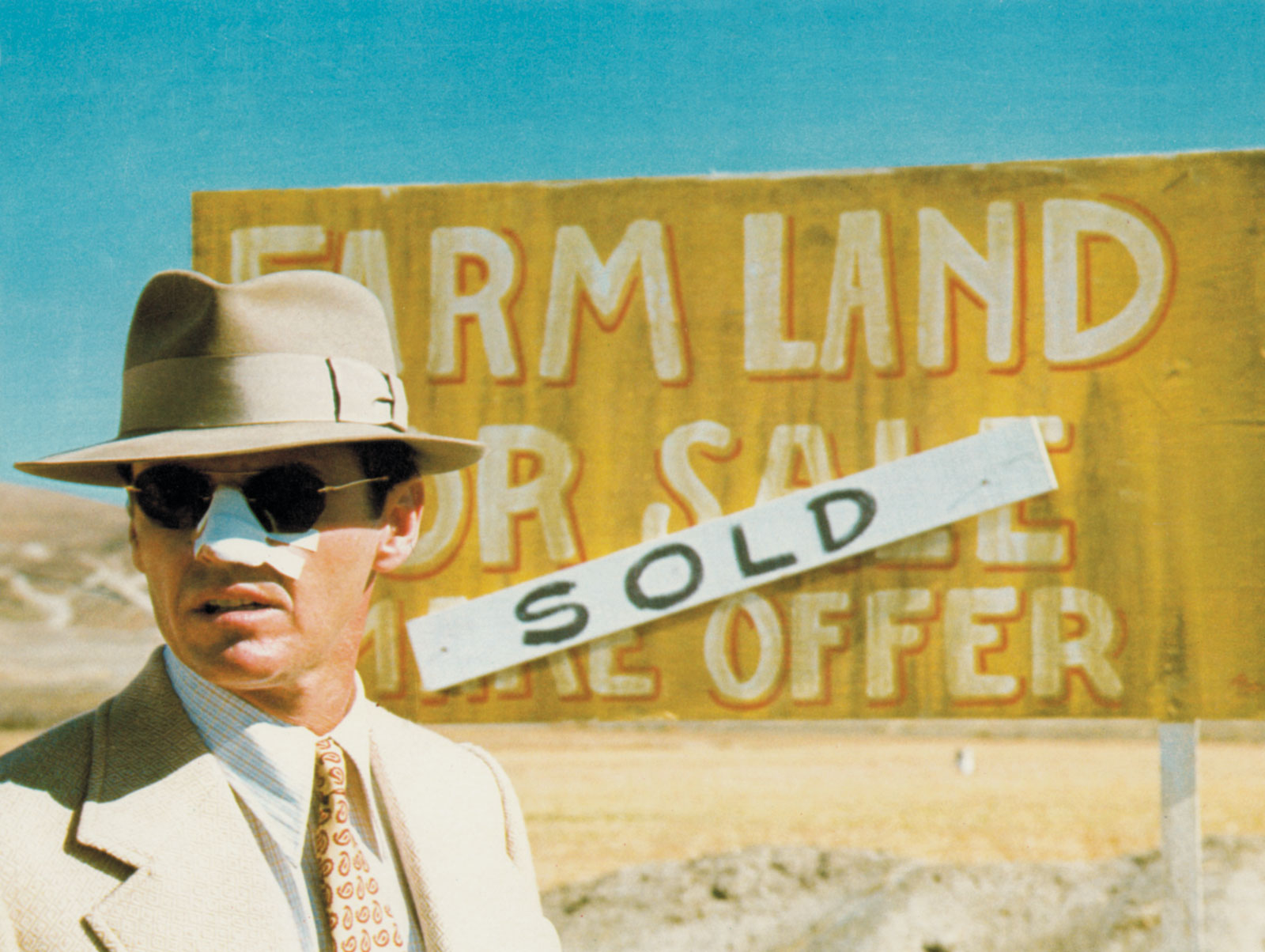
In a 2002 interview with The Guardian, Nolan stated that one of the main reasons he tends to gravitate towards the psychological thriller genre is that it often derives the material from genuine fears that people have. “The fear of conspiracy — of not being in control of your own life — is something I have a fear of and that many viewers can definitely relate to.” You’d be hard-pressed to find a finer film to fit such criteria than “Chinatown”, a benchmark of American cinema that crawls through the seedy underbelly of sunset-hued California and has been shouted publicly as a key touchstone that shaped Nolan’s directorial choices.
Even if you’ve not seen Roman Polanski’s cracked-mirror vision of 1930s L.A. (which means you’ve got some viewing to do), chances are you’ve seen plenty of modern thrillers that nicked bits and pieces from it. Jack Nicholson gives a career-best performance as Jake Gittes, a careworn private investigator who’s swept into a cesspool of corruption and gets wind of a political scandal after being hired to investigate an extra-marital affair. According to World of Reel, the film’s memorably tragic conclusion left a lasting impression on Nolan, who cited it as an example of an ending that “makes your brain really look at everything in a different way.”
7. The Hitcher (1986)
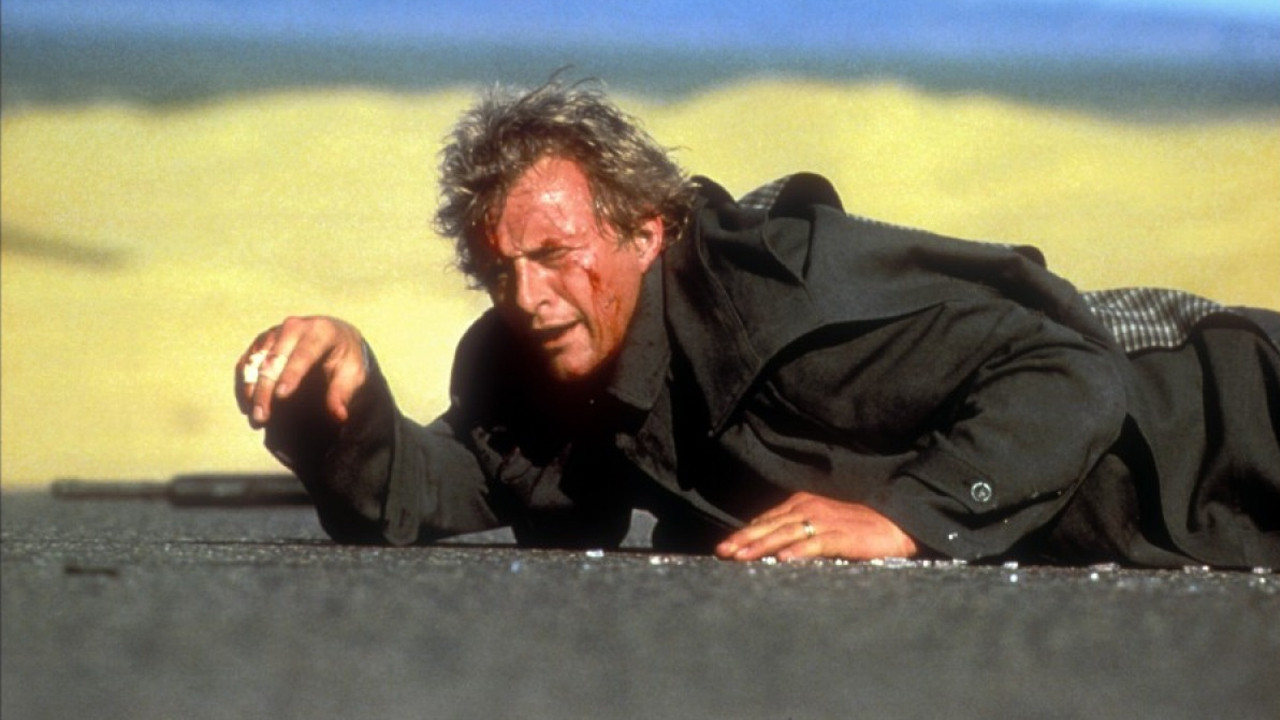
It only seems fair that Christopher Nolan’s friend, collaborator, and favorite actor of all time, Rutger Hauer, crops up at least once in this list. We could have opted for his career-defining turn in “Blade Runner” (the one film that has had perhaps the most significant impact on Nolan’s filmography), but we retain a lot of residual love for his truly frightening performance in Robert Harmon’s now largely forgotten road-to-hell thriller.
The legendary Dutch actor, who pushed for Nolan to helm the sequel to Ridley Scott’s seminal sci-fi and eventually cropped up in “Batman Begins” as William Earle, goes full-ham to deliver what the Brit filmmaker describes as the “most influential Euro-psycho performance this side of Blade Runner” playing a force of brute evil by the name of John Ryder. Something of a cross between Anton Chigurh and Heath Ledger’s Joker, Rutger’s titular character turns out to be a cold-eyed serial killer who targets any driver fool enough to pick him up across the highways of West Texas. “As a teenager I never questioned the logic of this Eighties chiller, but now it seems mind-bendingly arbitrary plot-wise,” says Nolan. “However, it does feature the criminally underappreciated Rutger Hauer at his finest.”
8. Frequency (2000)
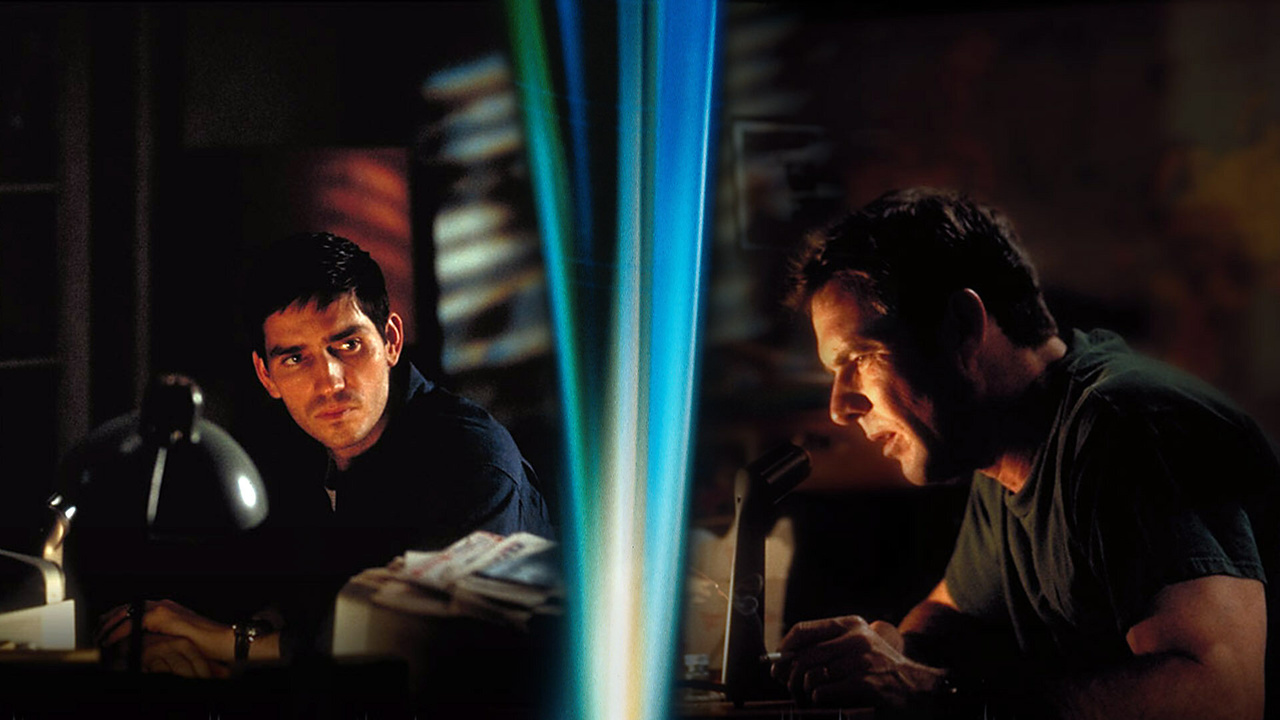
Diehard “Interstellar” enthusiasts who love watching daddy issues being resolved by way of a temporal paradox might find a new favorite to bawl their eyes out many times over in “Frequency”, a 2000 film Nolan pilfered liberally from when developing “Interstellar”, in which a New York police officer (Jim Caviezel) finds out he can communicate with his late father (Dennis Quaid), 30 years in the past, through the ham radio in his bedroom.
At risk of delving too much into spoiler territory, suffice to say, the central sci-fi conceit of this turn-of-the-millennium chiller bears striking resemblance to Christopher Nolan’s 2014 man-on-a-mission epic starring Matthew McConaughey. The performances are far from perfect and not every moment of sappy melodrama lands, but as long as you don’t mind suspending your disbelief for some old-fashioned space-time continuum genre hijinks, this father-son bonding movie will tug at your heartstrings and remind you of that famous Anne Hathaway quote about love being the one thing we’re capable of perceiving that transcends dimensions of time and space.
9. The Bad Sleep Well (1960)
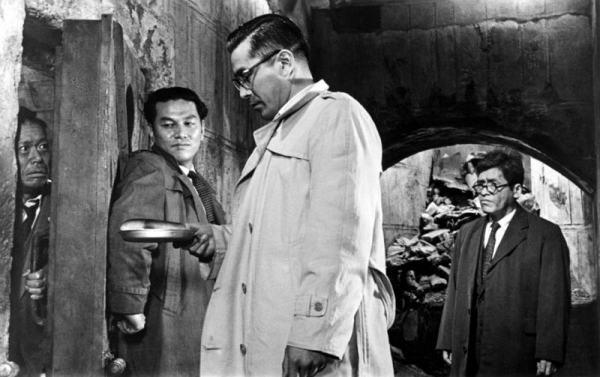
If all the plotting, scheming and political backstabbing in “Oppenheimer” got your adrenaline juices pumping, we suggest you turn to Akira Kurosawa’s loose take on Hamlet for a similarly vicious close-quarter drama about men in suits conning other men in suits.
A pitch-black morality play cited as a key touchstone for Nolan’s 2006 period piece starring Hugh Jackman and Christian Bale, “The Bad Sleep Well” centers around Nishi, an assertive young employee on his way up the corporate ladder who vows revenge on the corrupt leaders of a construction company responsible for his father’s death.
Considering the fact that he studied English Literature as an undergrad, it’s not altogether surprising that Nolan himself responded quite positively to one of the greatest Shakespeare adaptations ever put to film, revealing that one of the things he learned from his college days was realizing that “filmmakers should enjoy the same narrative freedoms that authors like Shakespeare had enjoyed from centuries”. Though something of an outlier in the director’s back catalog, this understated slice of Japanese cinema is a solid onramp for Nolan-heads and Bard aficionados alike.
10. The French Connection (1971)
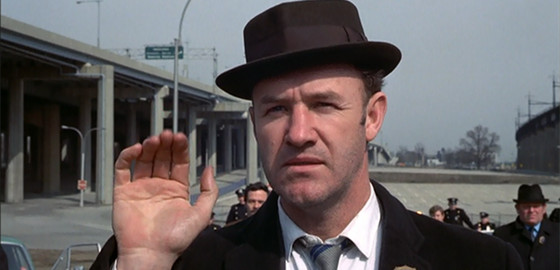
Whatever the time, whatever the season, it’s never wrong to revisit William Friedkin’s gritty cat-and-mouse thriller — a brilliantly cynical, uncompromising look at New York’s sleazy underworld starring Gene Hackman as a pragmatic, not always law-abiding and also kinda-racist NYPD narcotics officer who leaves no stone unturned in his mission to stop a massive heroin-smuggling operation.
The undoubted highlight in this five-time Oscar winner, handpicked by Nolan and actor Cillian Murphy during their visit to Paris-based video club Konbini, is its legendary car-chase sequence, all of it shot on location at South Brooklyn without obtaining any permits from the city. Rewatch the whole thing, though, and you’ll be pleasantly surprised to verify just how great every other scene, performance, and overall direction holds up. At once a time capsule of a bygone era and a strikingly modern crime caper, its influence is felt everywhere from the movies of the Safdie Brothers, David Fincher, and Spike Lee to gritty urban thrillers like “Heat” and “The Dark Knight”.